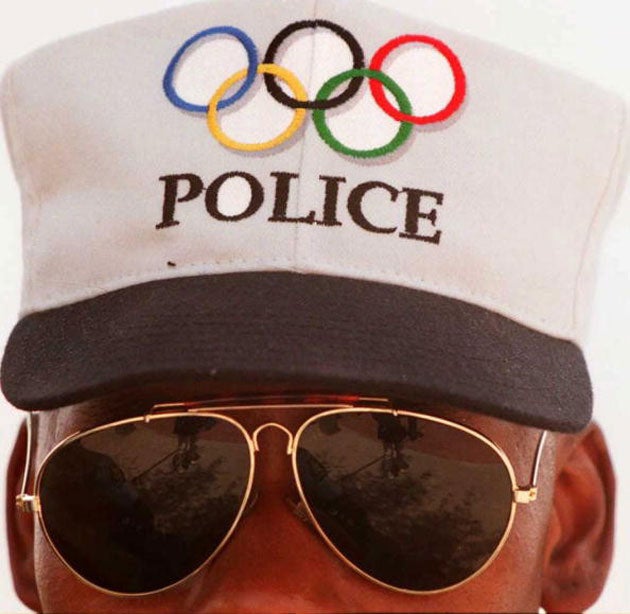Brian Viner: No medals for taking moral high ground

Dominic Lawson, not a name that regularly kicks off a sports section, raised some pertinent comparisons in this newspaper yesterday between the hosts of this year's Olympic Games and the hosts four years hence. Lawson made the point that, although we can all feel legitimate revulsion towards China for its human rights abuses, Britain is not exactly unblemished in that and many other areas.
He was not merely indulging in the sardonic self-deprecation at which the British are so good that, were it an Olympic sport, one gold medal would already be in the bag. (A few weeks ago a London cabbie remarked acidly over his shoulder to me that he fully expects a "major roadworks – next six weeks" sign to go up outside the Olympic stadium around mid-July 2012). It is perfectly valid to ask whether we are entitled to raise a flag on the moral high ground, especially in the light of much of the commentary leading up to these Olympics, in which there has been an underlying, and sometimes not so underlying, assumption of Western superiority, cultural, political and moral.
Lawson highlighted the hypocrisy of this by anticipating 2012. I would instead cite the centennial Games of 1996, in Atlanta. I wasn't there for the festival of sport, but three weeks before a heart-rendingly frail Muhammad Ali so touchingly ignited the Olympic flame, I visited Atlanta to check out reports that vagrants, most of them black, were being thrown into jail (a jail was the first building completed on schedule after Atlanta won its Olympic bid), or simply bussed out of town, so that the city would be looking its shiny best when the eyes of the world fell upon it.
The reports were largely true. I was familiar with Atlanta, having lived there in the mid-1980s, and knew that its self-styled image as the cradle of civil rights – the "City Too Busy To Hate" – was a construct that its former mayor Andrew Young had used in the pitch to host the Games. Young even suggested that the Atlanta Olympics offered "divine potential", that the city might provide a lesson in harmony to a troubled world. Whether he was deliberately echoing an old advert for one of the event's principal sponsors, Coca-Cola (which was invented in Atlanta in 1886), I never discovered. Either way, the Chinese organisers of the Beijing Olympics have at least resisted the temptation to sermonise. They know they have no right to teach the world to sing, in perfect harmony.
China has made no bones about wanting to use these Games to showcase the economic advances it has made, to present itself to the world as a vibrant, modernising superpower. Plus ça change, as old Baron de Coubertin, the father of the modern Olympic movement, might have said: image, not sport, is what the Olympics are all about. We disapprove of the draconian ways in which Beijing's city fathers have spruced up the streets, but it's worth reminding ourselves that it's not totalitarianism that makes these things happen, but an over-zealous civic pride that rears up somewhere every four years.
In 1996 the most controversial expedient to clean up Atlanta was a new by-law called the Parking Lot Ordinance, which enabled the police to arrest anyone "acting in a manner not usual for a law-abiding individual" in a car park. According to police, the ordinance helped them to reduce the alarming rate of car theft. But campaigners for the homeless insisted that its vague wording gave the police arbitrary rights to sweep down-and-outs from public view, and I found plenty of evidence to support them. More significantly, they were eventually supported by a Federal Court judge, who declared the Parking Lot Ordinance unconstitutional.
By then, however, in concert with other expedients, it had made a striking impact. Between May 1995 and May 1996 there were more than 9,000 arrests of homeless people in Atlanta, four times more than ever before in a 12-month period. Of course, many Atlantans were understandably delighted to see fewer derelicts downtown, and not just because the Olympics were coming. It was a lively topic on the daily phone-ins hosted by the city's best-known radio personality, a retired attorney and scourge of liberal do-gooders called Neal Boortz, who relished the suggestion of one listener that since the homeless were perpetually drunk, seemed to speak only rudimentary English, smelt horrible and urinated in doorways, the simplest solution would be to slap berets on them and pass them off as part of the French delegation. If Francophobia were an Olympic sport, maybe Britain's gold medal would not be in the bag.
Anyway, I phoned Boortz myself and he told me that the so-called street sweeps were no different from cleaning up your home before guests come over. That's just what they've done in Beijing, and we should all hesitate before we sneer.

Join our commenting forum
Join thought-provoking conversations, follow other Independent readers and see their replies